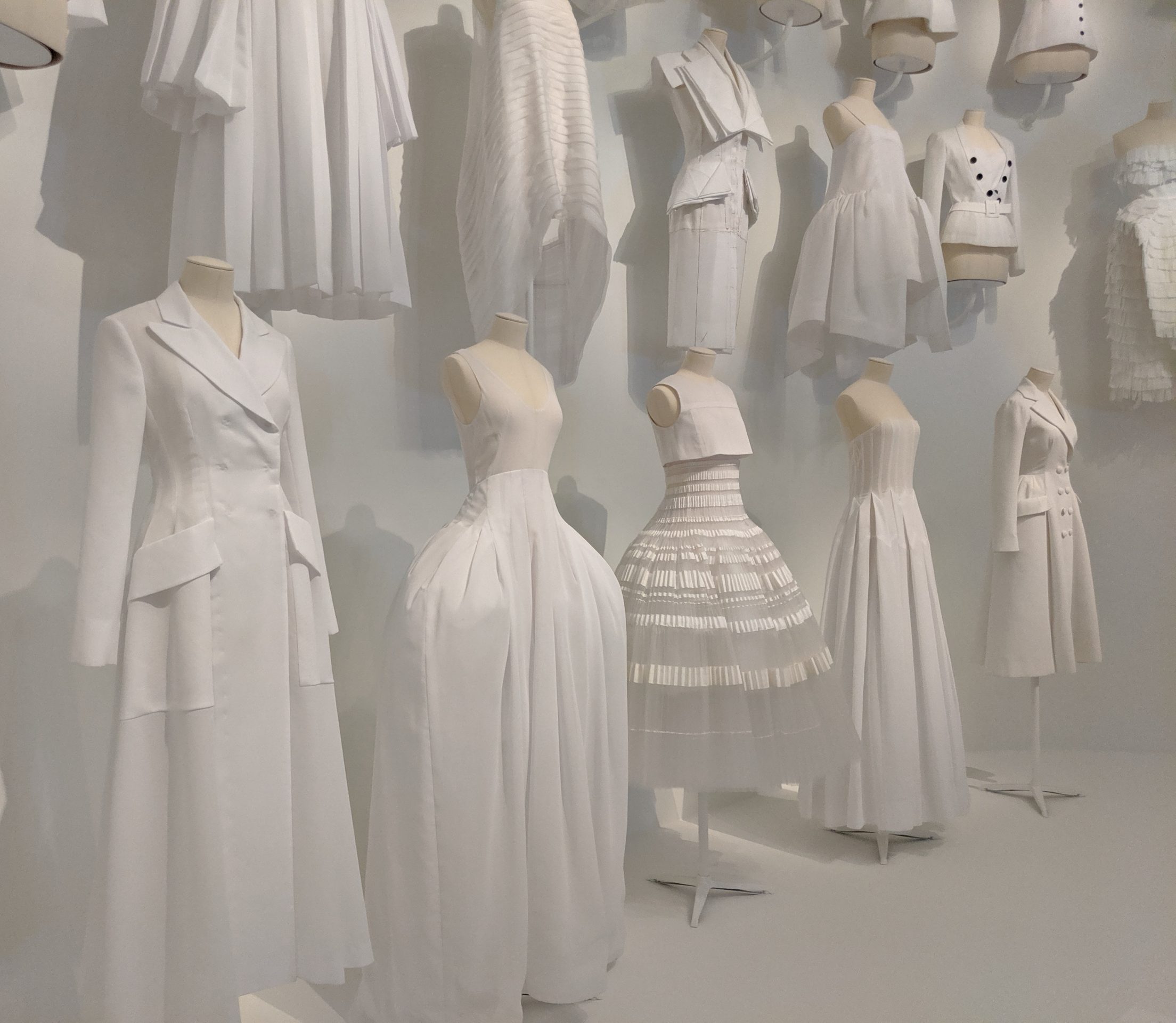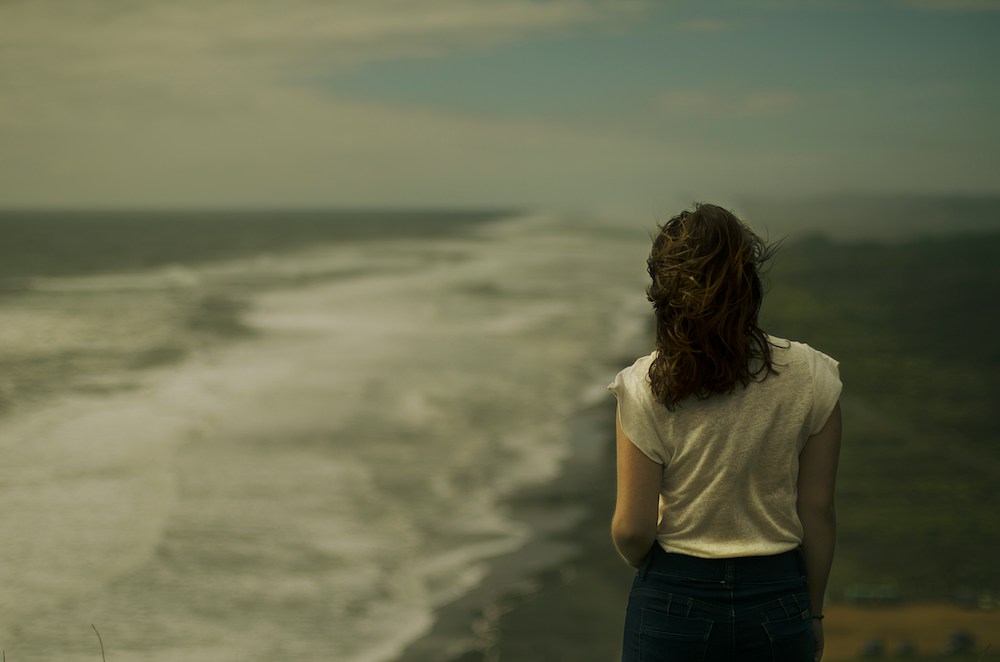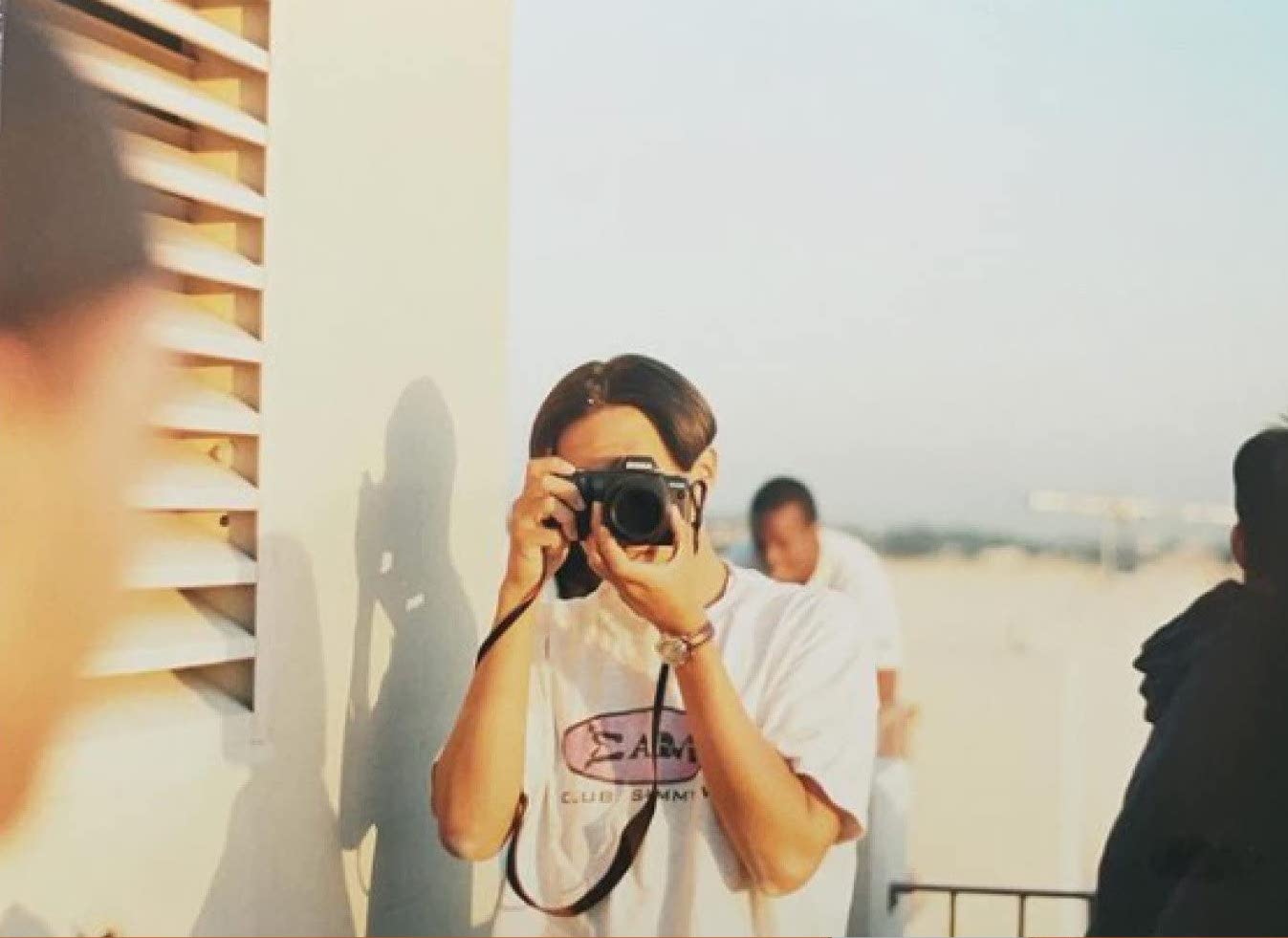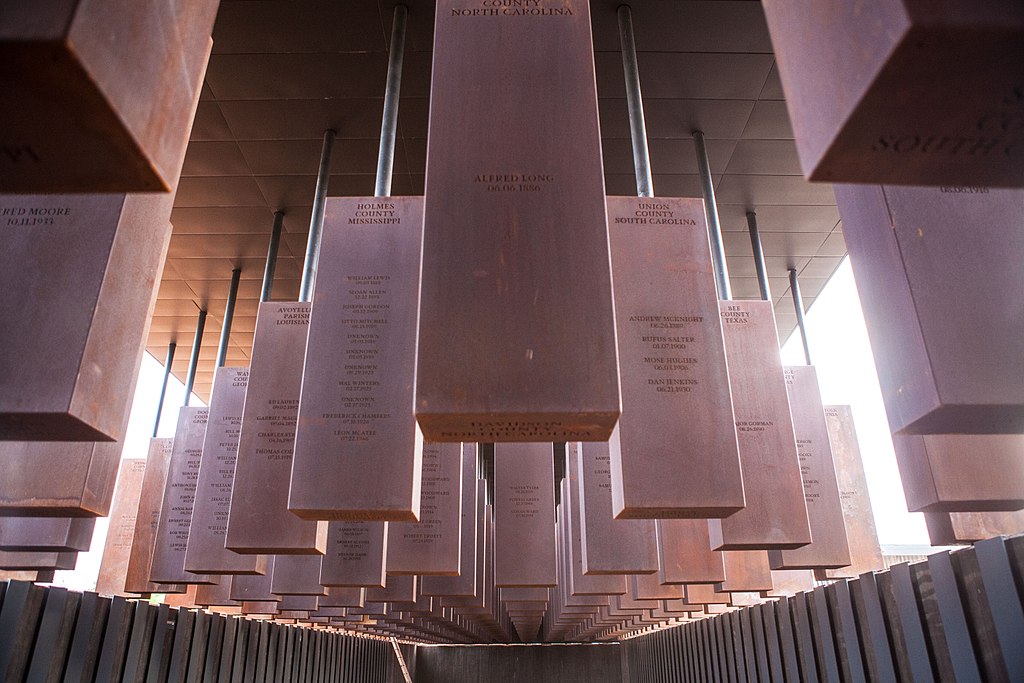Interviews
Can We Ever Know The True Version of Our Parents’ Life Stories?
In her memoir "Negative Space," Lilly Dancyger searches for an understanding of who her artist father really was
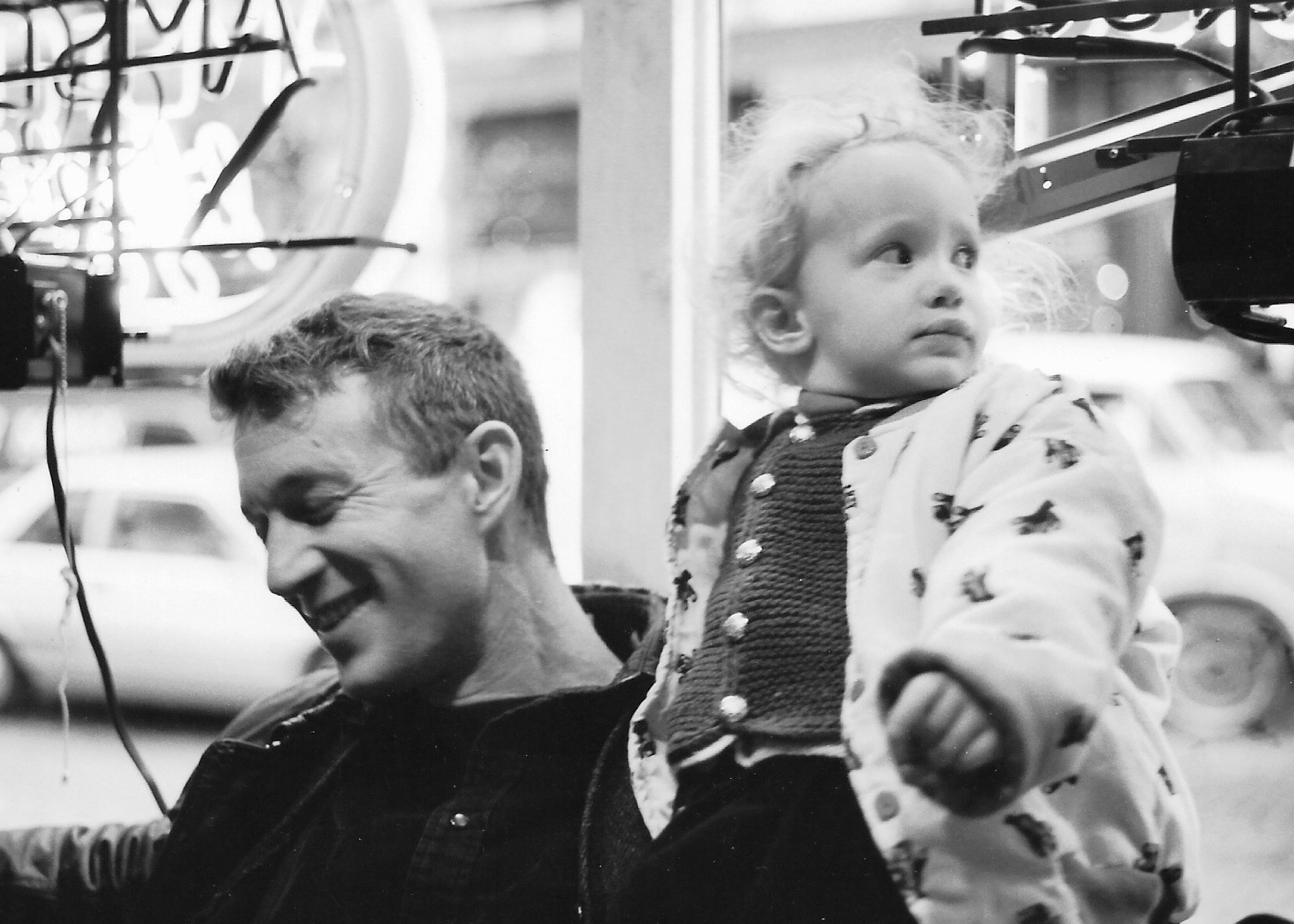
When Lilly Dancyger was twelve-years-old, her beloved father Joe died. Theirs had been a tender, playful, stalwart relationship full of intellectual banter, cunning life lessons, sand drawings awaiting the waves. And drugs. In addition to being a part of the thriving East Village art scene in the early ‘80s—creating beautiful yet troubling sculptures from roadkill, human hair, and paper-mache—Joe Schactman had a serious heroin habit. So did Dancyger’s mother, Heidi. While her father didn’t die from an overdose, his addiction left an imprint on Dancyger ’s heart and spirit. Along with her grief, unwavering adoration, and pieces of his artwork, it became her inheritance.
After spiraling into and pulling herself out of her own drug addiction, Dancyger sets out to get to know her father in ways most of us rarely are privy to. She reads through his old journals, love and hate letters between her parents; she interviews old friends of his and, most extensively, her own mom with whom she’d had an especially tumultuous relationship. Her memoir Negative Space is the result of this hard work, an exquisitely intimate unveiling of not only her father, but of her mother and herself. The language is elegant, precise, boney with wisdom and devotion. Each sentence is a finely wrought work of art unto itself. “Never be embarrassed by your ability to make just the right sentence, with all the exact words you wanted and needed,” Joe wrote in his last letter to Dancyger. And so she has.
Jane Ratcliffe: You note that in the process of writing this book you learned there is no “the truth” about your father’s life. Letters, people you interviewed and your own memories would contradict one another, so you set out to write “a truth.”
Lilly Dancyger: My background is in journalism, so I was very aware when I was interviewing people that they were only going to give me a little piece of the story. The deeper I went into it, the more I realized that no matter what version of the story I told, there was going to be somebody who disagreed with it.
JR: In recent years, there’s been a lot of writing on the mother wound, in particular by Vanessa Mártir. Do you think there’s also a father wound?
It’s unavoidable that all parental figures are going to impact us and likely damage us in some way, despite their best efforts.
LD: I think it’s unavoidable that all parental figures are going to impact us in some deep way and likely damage us in some way, despite their best efforts. Even wonderful parents. In some ways, both of my parents were really wonderful and did a lot of things right. But they also did a lot of things wrong.
I don’t want to speak in sweeping gendered terms, but just from my own perspective, the mother-daughter dynamic is so fraught, and that’s what a lot of that mother wound conversation tends to be about. In my childhood, my relationship with my father was simpler; and even in my adolescence, the fact that he wasn’t here made it easy for me to just love him and not resent him and not push back against him in the way that I did with my mother. My relationship with my father kind of stayed static in this idealized, adoring version of a relationship. But that also was the impetus for this whole project in that that became insufficient. It started to feel thin and too simple. As my relationship with my mother evolved past that initial, teenage rupture, and we started to find more depth, I started to see how one-dimensional it was to hold on to just this perfect idea of my father. So I went digging into the father wound; I was looking for where that rupture was, because it was under the surface, and it was maybe more scar tissue than wound. But sometimes for scar tissue to heal, you have to first rip it open.
JR: Beautiful and true. After your father’s funeral, you go into an extended period of mourning. Could you tell us about your mourning process then and possibly now?
LD: I grew up with witchcraft and the occult around me, from my mother and her friends. And it wasn’t long after my father died, that I started getting into all that on my own and made an altar. Mourning him was the first impetus for my wanting to connect to something bigger. I never believed in God or an afterlife or anything like that. But I also wanted to feel like he was still somewhere, still existent in some way. Grappling with what that might mean was the start of some spiritual exploration for me. I had a lot of really vivid dreams about him soon after he died that felt very much like visits and made it hard for me to ignore this feeling that there was something.
JR: After you drop out of school, you wandered the streets and got high most days. You write “I wanted to get out of my body, to find the limits and see if they would finally make me feel calm.” The drugs and all-nighters didn’t provide this for you. Can you talk about your relationship with your body these days? And have you found calm?
The fact that my father wasn’t here made it easy for me to love him and not resent him. My relationship with him stayed static in this idealized, adoring version.
LD: I definitely am a much calmer and happier and more level-headed person than I was back then, for sure. I also have unexplained chronic pain, which I’ve come to understand is very likely connected to a lot of the material in this book, to unresolved emotional issues and trauma. It took me a long time to even consider myself a person who had trauma. I went to therapy and started writing and realized, okay, not everybody has these experiences. Unresolved emotional things can manifest as physical pain. So that feeling of wanting to get out of my body…I don’t have the same version of that feeling that I did then, but I do still sometimes have a fraught relationship with my body where I wish it would leave me alone and relax sometimes.
JR: When it comes to drug use, your parents set the bar high for suffering. So much so that despite your daily hankering for coke as a teen and waking “every morning with my sinuses burning and the taste of death in my mouth,” you didn’t consider yourself addicted. It can be tricky to calibrate suffering and resilience from our own perspective rather than in comparison to those who raised us. Have you found your perspective now?
LD: It takes time. It’s a weird, difficult process. I think that’s a big part of why I didn’t think of myself as a person who had trauma for so long, because I had it pretty good compared to my mother’s life. She went through a lot of things that are very obviously traumatic. It took me a while to recalibrate that. I’m realizing that there are gradients to trauma and to addiction and to resilience. I always have thought of myself as a very resilient person. But then you dig into your past and your experiences and realize that a lot of resilience is sometimes also masking things.
JR: Your father hitchhiked a lot and as a teen you longed to, as well, but knew it wasn’t safe to do alone. You write: “But I like to imagine my father’s travels, thinking that they’re in my DNA and that maybe what I felt back then wasn’t desire, but memory.” There is so much talk about intergenerational trauma these days, perhaps the same is true of longing?
LD: I always knew that I was a lot like him, but writing the book, I realized that I’m a lot like him, in even more ways. So it just made sense to me that, Oh, yeah, of course, he did this thing that I always had this intense pull towards. I don’t know how much of that is just a similarity in personality type or was his stories or his attitude that was passed down to me. Or if there was some kind of more deep-seated, ingrained whole. It makes sense to me that if trauma can imprint your DNA, other things can too. They say that your gut biome is dictated by your parents’ and even your grandparents’ diets. I think there’s so much to all of that that we just don’t really understand. And inclinations, desires, all of that. I’m sure, it’s passed down like that.
JR: It can be so hard to allow our parents to simply be people, we want them to be protectors and role models, et cetera. But in the process of writing this book, you learn some hard truths about both of them—and very much humanize them.
LD: I was able to embrace the idea of my parents as people intellectually, and able to write about it. But I still definitely feel that indignation sometimes on a human level as a daughter about both of them. It’s an ongoing endeavor to actually just allow them to be people and understand that they aren’t required to be any more perfect than anyone else just because they’re my parents. But that still is a hard idea to let go of, because there’s so much that you want your parents to do and to be for you and to be able to provide, even now. It’s one thing looking back and embracing past versions of them as people, but then also as an adult in my 30s, this is an ongoing thing happening. And I still want more from both my parents, even my father, who is not here and can’t possibly do anymore at this point.
JR: You also had to acknowledge them as sexual beings. For one thing, your mother’s naked torso appearing in some of your dad’s artwork; and then your dad’s interpretation and presentation of her body and women’s bodies in general. Plus, all that you learned about their life together. We’re back to the intimacy. What was that experience like?
LD: That was definitely one area where I found myself kind of shying away. I don’t really need to know all the details, but a lot of it is just so right out there on the surface if you look at the work. And, also, my mother was a stripper for a lot of my childhood. So sexuality was not taboo or hidden. She was a stripper and a lot of her friends were strippers, and they were all my friends. My godmother was somebody who she met at a club. I remember she explained to me at a very young age, what she did for a living and she just said, well, women’s bodies are so amazing that sometimes men will pay money just to look at them. I was like, okay, yeah, makes sense.
JR: You write: “I’d been thinking of truth as something stronger than memory, something that could—and even should—erase what I remembered if they didn’t match up.” Can you elaborate on this?
LD: That was a part of my grappling with truth as you mentioned in the beginning—is there a true version of this story? There were a couple of points where my memory didn’t match up with what people were telling me in very clear irreconcilable ways. I kept waiting for this shattering moment, or this shift, where this whole understanding of my father would change, but it wasn’t like that. It was layering and deepening and broadening but the memories I had are still there, unchanged, they’ve just been added to. I’m realizing that was one of the big aha moments of this process. At first, I felt like I was failing. I felt like I had denial mechanisms I had to fight through, that I was holding on to something and I had to surrender myself to the story. But I realized that multiple things can be true at once: He could be sexually aggressive with his wife and stealing from his friends and doing all of these unsavory things and still be just as wonderful as I remember him. That was a big relief.





